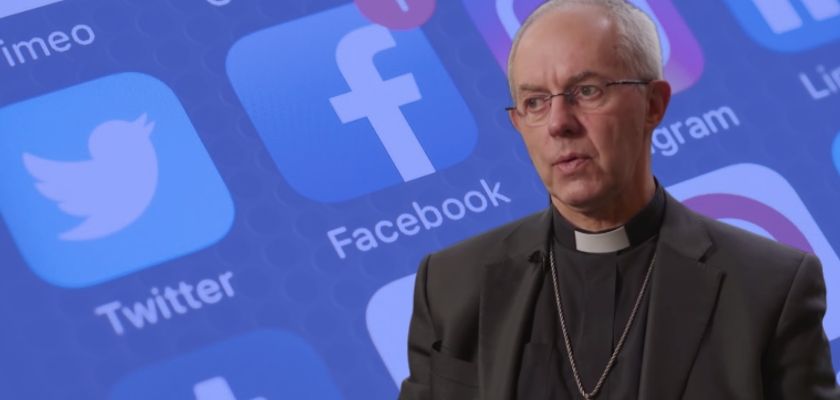The head of the Church of England has decided to address the challenges of the digital age.
But don’t be alarmed by some declaring Archbishop Justin Welby’s statements to be “the first set of digital commandments” – the archbishop is not, in fact, attempting to rewrite or append the Bible.
And the initiative is not exactly new – nor frankly, is the way any archbishop would phrase it, if asked.
Instead, the Church of England has made public its “community guidelines,” the UK newspaper reports.
These guidelines are nine and are meant to lay down the updated “commandments,” the daily said.
But, if the article is to be believed, Welby is still making a bit of a controversial statement: apparently, he’s linking the practice of online “abuse” with that of “cynicism.”
“Each time we interact online we have the opportunity either to add to currents of cynicism and abuse or to choose instead to share light and grace,” the archbishop is quoted as saying.
In reality, many of the “commandments” cited here are just plain logic or sound very reasonable: first, they praise the social media for their interactiveness and even “openmindedness.”
Then, the message warns the believers to “apply common sense” and be truthful and honest about their identity, as well as respectful, kind, honest, and responsible online.
The Anglicans are also warned against being “bad ambassadors” and against disagreeing with others without failing to credit them.
For example, one of the rules says: “Respect copyright and always credit where it is due. Be careful not to release sensitive or confidential information and always question the source of any content you are considering amplifying.”
Users of online media are also urged to “follow the rules” of various social media platforms and even denounce transgressors to the companies in questions.
This comes even though, as recent practice has shown, that may be super difficult, if not impossible – as social giants declare one set of rules and then repeatedly judge their users by another.
According to the report, the Church of England said these guidelines are built on “universal principles.”
Considering that various major Christian denominations can’t even agree on a common date for Christmas or Easter – it will be interesting to see how this initiative from Archbishop Welby will go down in the greater Christiandom, and indeed, the web world.
But the Anglican Church address this point as well: it hopes that “all faiths, as well as those who do not follow a religion, will use the charter to consider how their online interactions can affect others, both in a positive and negative way.”













